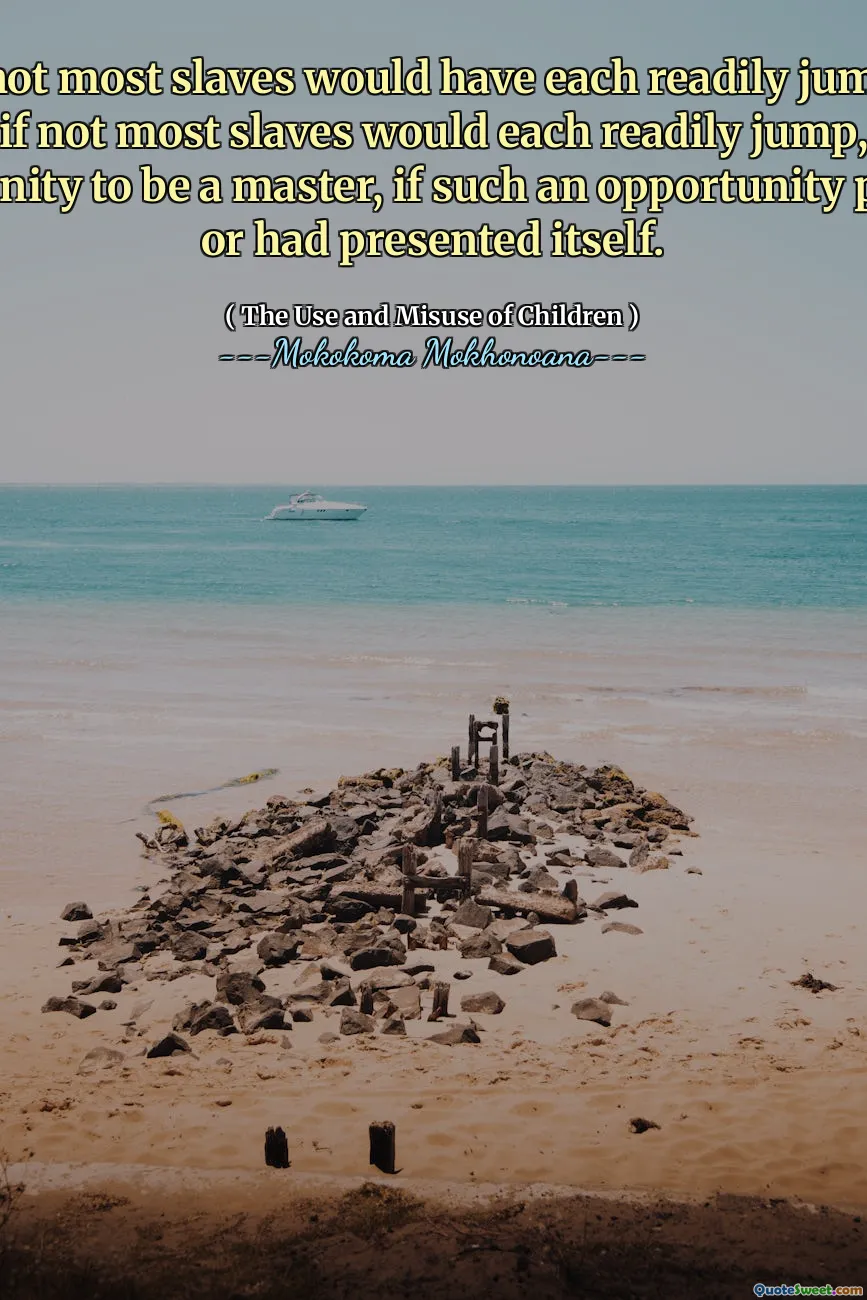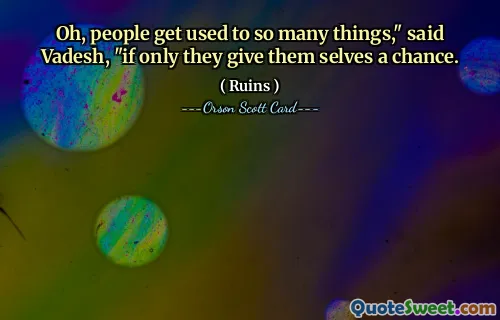
Many if not most slaves would have each readily jumped, and many if not most slaves would each readily jump, at the opportunity to be a master, if such an opportunity presents or had presented itself.
This quote underscores a profound and complex aspect of human nature—how the desire for power and status can influence individuals across different circumstances, including those historically deemed oppressed. It challenges us to consider that the allure of authority is intrinsic to human psychology, and it can manifest regardless of one's position in a social hierarchy. The repeated phrase emphasizes the likelihood that even those subjugated, under the right conditions, might yearn for the chance to wield control and authority themselves. Such observations invite reflection on the dynamics of power, empathy, and the social construction of status. It prompts us to question the assumptions we hold about morality and resilience in the face of oppression, highlighting that the capacity for ambition and aspiration doesn't necessarily follow a straightforward moral line. Instead, it reveals the universality of certain human tendencies—longing for agency, respect, and influence—that can sometimes be misdirected or understood in ways that defy simplistic notions of virtue or vice. The quote encourages a nuanced understanding of human motives, recognizing that the impulses for dominance and submission are deeply embedded in human nature, often shaped by the conditions and opportunities present. Such insights are essential for addressing social injustices and understanding historical contexts, where power dynamics are always at play, influencing both actions and perceptions. Overall, it presents a sobering look at the complexity of human ambitions and the enduring influence of societal structures on individual desires.



